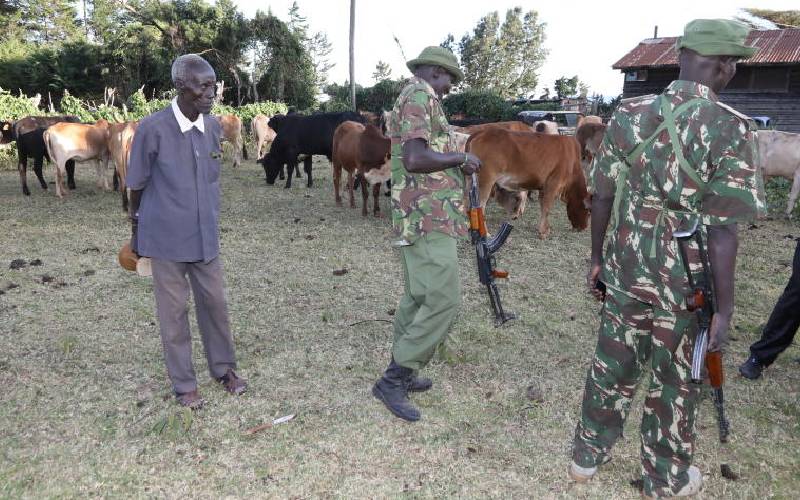×
The Standard e-Paper
Smart Minds Choose Us

Security officers identify some of the 54 cows recovered in Elgeyo Marakwet as they were being driven to a market in Eldoret.[Kevin Tunoi,Standard]
The continued banditry and cattle rustling attacks on innocent people along the Kerio Valley must be condemned. Renewed cattle rustling incidents along the Kerio Valley that have claimed more than five lives in the last one week alone pose a serious threat to the gains made by the recent peace caravan spearheaded by leaders and women.